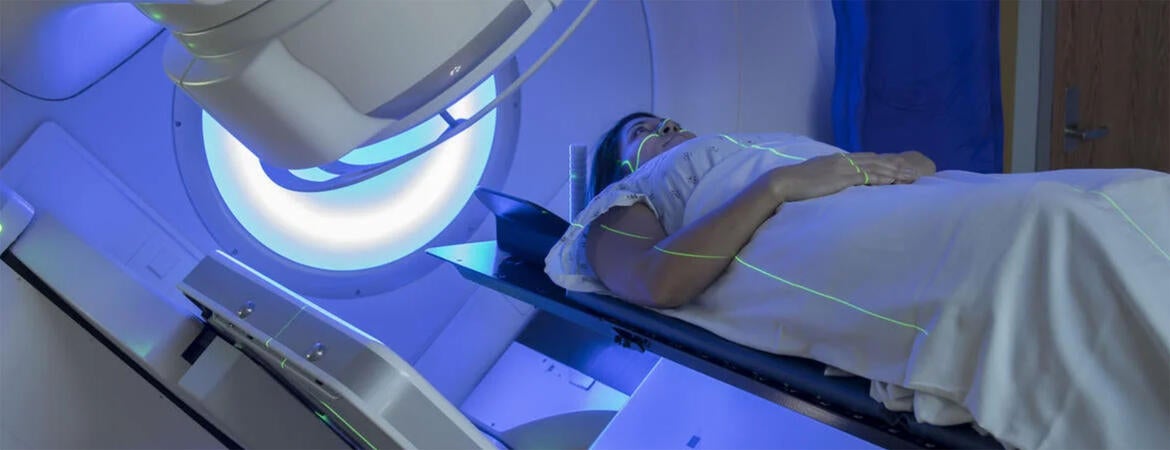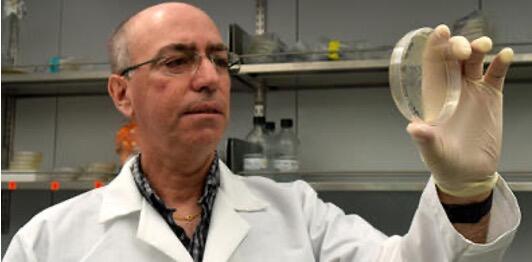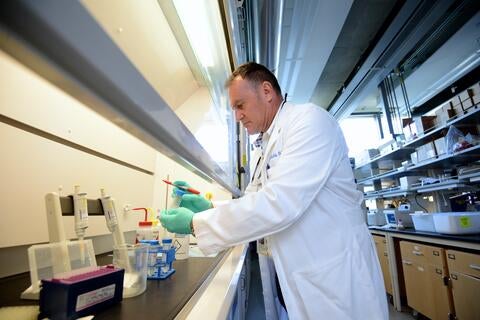Maximizing Access to Research Careers (MARC) for Undergraduate Students

A multiyear cancer-research project, stemming from a newly established partnership between the University of California, Riverside, and the City of Hope – Comprehensive Cancer Center (CoH-CCC), has received funding from the National Cancer Institute (NCI) of the National Institutes of Health to develop collaborations, resources, and training programs aimed at reducing disparities in cancer research and drug development throughout the drug development pipeline.
Exceeding $13.7 million, the five-year grant, which will be split almost equally between UCR and CoH-CCC, was awarded by the Partnerships to Advance Cancer Health Equity, or PACHE, a program of the NCI. PACHE provides awards to develop partnerships between institutions serving underserved health disparity populations and underrepresented students, such as UCR, and NCI-designated cancer centers, such as CoH-CCC. Each partnership develops and implements cancer research experiences and research education for scientists and students and disseminates cancer advances to underserved communities.
“The generous NCI funding will help UCR and CoH-CCC become a focal point for mentoring and training a diverse force of cancer biologists and addressing the disparities in cancer therapeutics and drug development,” said Ernest Martinez, a professor of biochemistry at UCR and the principal investigator of the grant apportioned to UCR. Martinez will partner with Dr. Victoria Seewaldt, the principal investigator of the partnership at CoH-CCC.
Martinez added: “The innovative cancer research projects that the funding will help develop will greatly increase the number of students and investigators from underrepresented populations engaged in cancer research.”
Titled “Drug Development and Capacity Building: a UCR/CoH-CCC Partnership,” the grant will also develop and implement cancer-related activities that benefit the surrounding underserved communities. The grant will support mini-pilot projects, pilot projects, and full projects led by UCR researchers. These projects will be relevant to the goals of the grant and involve collaborations with CoH-CCC scientists.
At the core
The NCI funding will help establish a cancer education core at UCR that will be directed by Maurizio Pellecchia, a professor of biomedical sciences and the Daniel Hays Endowed Chair in Cancer Research in the School of Medicine, who will also serve as project leader on new therapeutics.
“In the education core, we intend to establish a new Center for EDUCation in Oncology REsearch and Innovation, or EDUCORE, that will work as a forum to increase cancer awareness and provide training and education for UCR students and investigators in cancer research,” said Pellecchia, who directs the Center for Molecular and Translational Medicine in the UCR School of Medicine. EDUCORE will be led by Pellecchia and Daniel Novak, a health sciences assistant clinical professor in the School of Medicine’s Department of Social, Population, and Public Health.
Other cores the NCI funding will establish at UCR are an outreach core, led by Dr. David Lo, a distinguished professor of biomedical sciences; and a planning and evaluation core, led by Kendrick Davis, a health sciences associate clinical professor in the medical school’s Department of Psychiatry and Neuroscience.
Key projects
The NCI grant will make possible two full research projects in breast cancer and pancreatic cancer that will involve training, research, and education.
The first, led by Martinez and co-led by Maria Ninova, an assistant professor of biochemistry at UCR, will focus on luminal B breast cancers, or LBBC, approximately 20% of which are highly aggressive and resistant to current therapies. LBBC disproportionally affects women of African descent. The majority of LBBC have activation of an oncoprotein called MYC. Martinez and Ninova will collaborate with CoH-CCC breast cancer expert oncologists and biomarker/population scientists.
“This project will identify and characterize novel cancer-selective genetic and epigenetic mechanisms and signaling pathways of the MYC oncoprotein,” Martinez said. “The long-term goal is to identify new ‘druggable’ targets to improve survival of women with aggressive LBBC, including women of African ancestry. My lab recently identified a new signaling pathway for MYC that activates specific genes that make mammary cells malignant. We are now investigating whether this pathway occurs in breast cancer of women of different ancestries. If so, specific drugs or interventions can be designed to break the signaling in breast cancer.”
The second project, led by Pellecchia and co-led by Gregor Blaha, an associate professor of biochemistry at UCR, will focus on the oncogene PIN1 that is overexpressed both in pancreatic cancer cells and cancer-associated fibroblasts. In pancreatic cancers, which disproportionally affect African American populations, PIN1 also confers resistance to chemotherapy and immunotherapy. When PIN1 is over-expressed, it induces the expression of other oncogenes, including MYC. It also inactivates several tumor suppressors. Studies have shown that PIN1 inhibition could downregulate key oncogenic pathways.
“PIN1 inhibitors could increase sensitivity of pancreatic cancer to both chemotherapy and immunotherapy,” Pellecchia said. “My lab has developed initial PIN1 inhibitors, being patented at UCR, that present an innovative mechanism of action in that they cause the degradation of PIN1 in cancer cells very effectively.”
Pellecchia and his research team will work with CoH-CCC scientists to translate these inhibitors into potential therapeutics. Their initial focus will be on pancreatic cancer, for which there are only limited treatments.
“The average survival rate is less than five years for newly diagnosed pancreatic cancer patients,” Pellecchia said. “However, given the pivotal role of PIN1 in oncogenesis, our studies suggest that our inhibitors may also suppress progression of other tumors, including those in breast, lung, and prostate cancers.”
A third project is a pilot project led by Deborah Lefkowitz, an assistant professional researcher in the UCR School of Public Policy, and co-led by Lo of the School of Medicine. It will develop a clinical trial at UCR in collaboration with CoH-CCC to test the ability of metformin — medication used in patients with type 2 diabetes to reverse insulin resistance — to reduce inflammation in insulin-resistant breast cancer survivors. The trial will involve the participation of insulin-resistant Latina and African American/Black breast cancer survivors.
Diversity boost
Martinez stressed that diversity in all projects will be included in cancer research and education as well as the clinical trials.
“We want the researchers and the beneficiaries of the research to reflect the diversity of Southern California,” he said. “Our partnership with CoH-CCC is a game changer. Such stable partnerships are difficult to form. They give us at UCR access to doctors and oncologists who can provide us with all kinds of samples for analysis.”
Pellecchia is excited the partnership with CoH-CCC can eventually take UCR discoveries all the way to the clinic.
“The intent of the NCI is to have a marriage between an advanced NCI-designated cancer center, such as CoH-CCC, and a minority-serving institution, such as UCR,” he said. “CoH-CCC has state-of-the-art resources to move our pre-clinical advanced discoveries all the way to clinical trials. Our ultimate hope is that when the trials take place, patients from Inland Southern California in need of such treatments will take part.”

